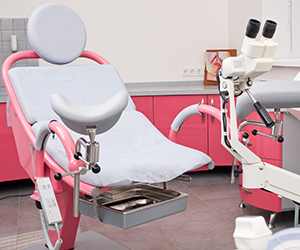Latest News Archive
Please select Category, Year, and then Month to display items
![]()
“A mind that is learning is a free mind and freedom demands the responsibility of learning” – J. Krishnamurti. What is the essence of education in our modern society amid the emerging, unprecedented, present-day circumstances? On 27 November 2020, third-year students from the University of the Free State (UFS) not only sought to inspire the youth in Kestell and bring them messages of hope, but also actively engaged them on how to be equipped with the necessary skills that would help them surf through the rapidly advancing world economics and the changing labour-market demands.
The collaboration with other expert stakeholders created a platform for significant conversation about alternative skills training that is designed to successfully address the current economic needs, thus enabling education to thrive and serve the intended purpose, which would ultimately manifest in effective transformation within communities. The UFS Qwaqwa Campus Community Engagement office coordinated the teamwork, comprising the Free State Department of Social Development, Maluti TVET College, the Free State School of Nursing, AGAPE Foundation for Community Development, Japie Lepele Foundation, the Riverside Finishing School, and Advance Academy.
TVET education allows students to progress in fields that suit them best and at the same time acquire skills needed for the future world of work. Information Technology (IT) students and staff members shared encouraging testimonies of their education experience and employment. The academy presented their finishing school programme to encourage learners to complete their secondary education even after they have suffered some interruptions. Although there are currently many challenges facing education in our semi-rural areas – such as Kestell – that result in lack of access to education and insufficient resources, civil partnerships like these are supporting and enabling communities in their quest to find their own solutions.
Care centre goes high-tech to help sexual abuse victims
2016-11-25

The colposcope, donated by the Discovery Fund,
will be used during gynaecological examinations
to detect any irregularities.
Photo: Supplied
Rape is one of South Africa’s most pressing social problems. Rape levels in the country are often discussed and reported on, but it does not deter perpetrators from this behaviour. According to Africa Check, of the more than 42 000 rape cases reported in 2015, 15 790 were child rape cases.
In an effort to assist victims of sexual assault and rape, the University of the Free State (UFS) Department of Family Medicine adopted the Tshepong Thuthuzela Care Centre, under the leadership of UFS lecturer Dr Mariaan Kotze.
The Discovery Fund donated a colposcope to Tshepong Thuthuzela Care Centre, an instrument that works with the help of a bright light and which is used to examine victims of abuse. It has also become a standard of good practice in the assessment of child abuse worldwide. According to Dr Kotze, the new instrument will also be used for training health practitioners by rendering clinical forensic services to abuse victims.
Managing complex issues
The care centre works with between 80 and 120 victims of rape each month, a third of whom are children under 14 years of age. According to Dr Kotze, the management of child sexual abuse victims is more complex than with adults; as there is a higher chance of missing or over-diagnosing abnormalities. Also, she says, the examination process is often observed by a group of healthcare practitioners, an experience which is often intrusive and intimidating for the child. With the colposcope, the timeframe of the examination is shortened, and can be captured and viewed in real time, without the victim being present.
Best care for victims
The colposcope is a magnifier and light source used during gynaecological examinations. It is instrumental in providing the best care to victims of sexual abuse, and helps diagnose and assist in the treatment of cases of abuse. Its ability to capture and review images at the time of examination allows for retrospective research, and improves the ability of expert witnesses in court cases.